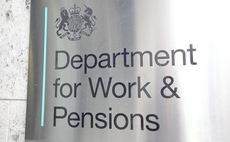Letter to FTSE 350 companies urges them to take action after all are found to be 'leaking' data online
The director general of MI5, Andrew Parker, and the director of GCHQ, Sir Iain Lobban, have urged all FTSE company chairmen to take part in a "cyber governance health check". The move comes afte...
To continue reading this article...
Join Computing
- Unlimited access to real-time news, analysis and opinion from the technology industry
- Receive important and breaking news in our daily newsletter
- Be the first to hear about our events and awards programmes
- Join live member only interviews with IT leaders at the ‘IT Lounge’; your chance to ask your burning tech questions and have them answered
- Access to the Computing Delta hub providing market intelligence and research
- Receive our members-only newsletter with exclusive opinion pieces from senior IT Leaders





















